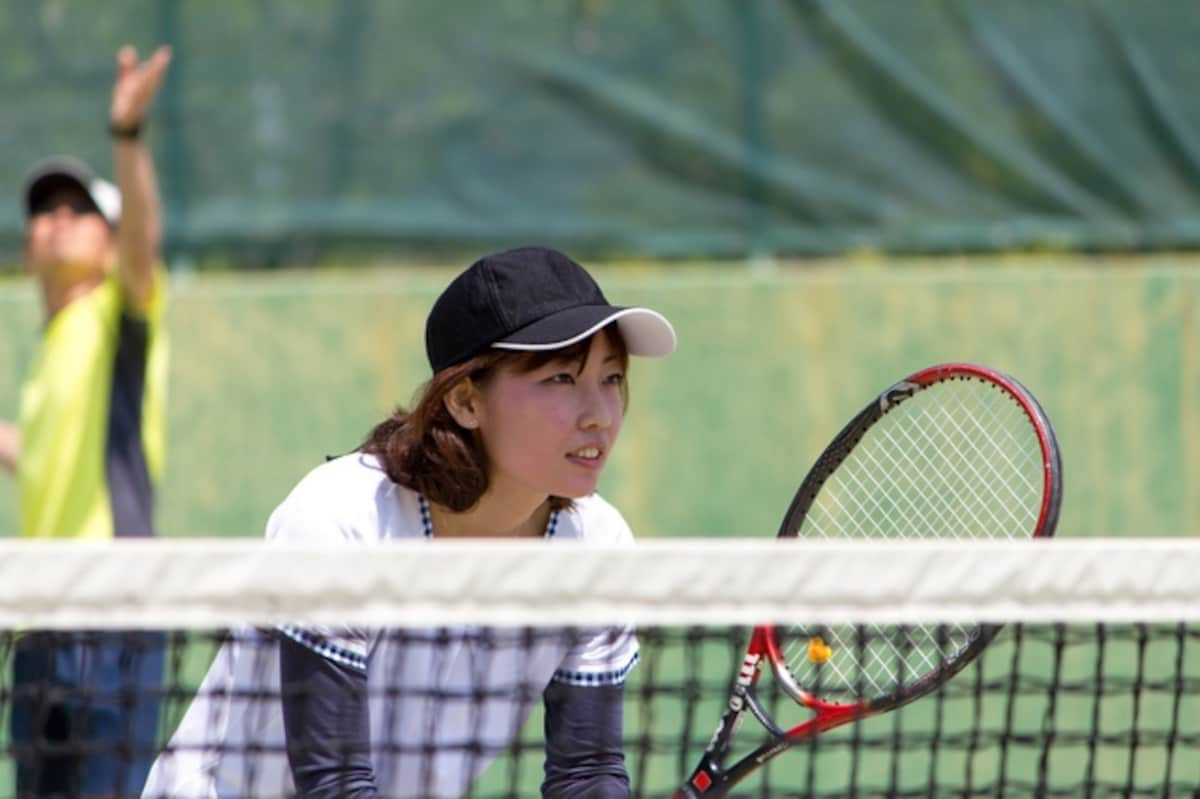The Significance of Home Advantage in Japanese Tennis
Related Articles: The Significance of Home Advantage in Japanese Tennis
Introduction
With great pleasure, we will explore the intriguing topic related to The Significance of Home Advantage in Japanese Tennis. Let’s weave interesting information and offer fresh perspectives to the readers.
Table of Content
The Significance of Home Advantage in Japanese Tennis

The concept of home advantage, a phenomenon observed across various sports, holds particular significance in Japanese tennis. While the sport itself is inherently individualistic, the cultural context and fervent support of Japanese fans create a unique dynamic that elevates the importance of playing on home soil. This article delves into the multifaceted nature of this advantage, examining the historical context, cultural influences, and psychological impact of playing in front of a Japanese crowd.
Historical Context: A Legacy of Passion
Tennis in Japan boasts a rich history, dating back to the early 20th century. The sport’s introduction was primarily driven by Western influence, but it quickly gained traction, becoming a popular pastime among the Japanese elite. This early adoption laid the foundation for a strong tennis culture, characterized by a deep appreciation for the sport’s technical nuances and athleticism.
The emergence of iconic Japanese players like Ichiya Kumagai and Fumiko Usui in the 1920s and 1930s further solidified tennis’s place in the nation’s sporting landscape. Their achievements inspired generations of aspiring players, contributing to the development of a strong domestic tennis scene.
Cultural Influence: The Power of Collective Spirit
Japanese culture places a high value on group harmony and collective effort. This emphasis on shared goals and unity extends to sporting events, where fans are expected to actively participate and contribute to the success of their team or individual athlete. This fervent support creates a unique atmosphere, characterized by a palpable energy and unwavering dedication.
The intensity of this support is particularly evident in tennis, where the silence between points allows the crowd’s enthusiasm to resonate powerfully. The roar of the crowd upon a successful point, the collective gasp during a tense rally, and the unwavering encouragement throughout a match create an immersive experience that can be both exhilarating and intimidating for players.
Psychological Impact: A Boon or a Burden?
The psychological impact of playing in front of a home crowd is a complex and multifaceted phenomenon. While the support can be a source of motivation and strength, it can also create pressure and anxiety. The weight of expectations, the fear of disappointing the home fans, and the constant awareness of the crowd’s gaze can significantly affect a player’s performance.
However, the potential benefits of playing on home soil often outweigh the challenges. The overwhelming support of the home crowd can provide a sense of belonging and confidence, empowering players to perform at their best. The familiar surroundings and the absence of travel fatigue can also contribute to a more relaxed and focused approach.
The Case of Japanese Tennis: A Unique Advantage
The combination of a passionate fan base, a strong tennis culture, and a unique psychological dynamic creates a distinct advantage for Japanese players competing on home soil. This advantage is not merely about the physical environment but encompasses the intangible factors that shape a player’s mental and emotional state.
The unwavering support of the Japanese fans, their deep understanding of the sport, and their ability to create a vibrant and energetic atmosphere can inspire players to achieve extraordinary feats. This advantage is not simply a matter of noise or cheering; it is a manifestation of the collective spirit and unwavering dedication that defines Japanese tennis.
FAQs: Unraveling the Nuances
Q: How does the home advantage manifest itself in Japanese tennis?
A: The home advantage in Japanese tennis manifests in various ways, including:
- Fan Support: The fervent and knowledgeable support of the Japanese fans creates a powerful atmosphere that can inspire players to perform at their best.
- Cultural Influence: The emphasis on group harmony and collective effort in Japanese culture fosters a sense of unity and shared purpose, enhancing the impact of home support.
- Psychological Impact: The positive influence of playing in front of a home crowd can boost confidence, reduce anxiety, and enhance focus, leading to improved performance.
Q: What are the challenges associated with playing on home soil?
A: Playing in front of a home crowd can also present challenges:
- Pressure and Expectations: The weight of expectations from fans and the fear of disappointing them can create significant pressure.
- Anxiety and Nervousness: The constant awareness of the crowd’s gaze and the intensity of their emotions can lead to anxiety and nervousness, affecting performance.
- Distraction: The noise and excitement of the crowd can be distracting, particularly during crucial moments of the match.
Q: How can Japanese players leverage the home advantage to their benefit?
A: Japanese players can effectively leverage the home advantage by:
- Embracing the Support: Welcoming the support of the home crowd and using it as a source of motivation and strength.
- Managing Expectations: Acknowledging the pressure but not allowing it to overwhelm their performance.
- Focusing on the Process: Maintaining a calm and focused approach, focusing on the task at hand rather than the external factors.
Tips: Maximizing Home Advantage
- Preparation and Familiarization: Familiarizing oneself with the playing surface, the crowd dynamics, and the specific environment of the tournament.
- Mental Conditioning: Preparing mentally for the challenges of playing in front of a home crowd, practicing mindfulness techniques to manage pressure and anxiety.
- Visualization and Positive Self-Talk: Visualizing success and using positive self-talk to enhance confidence and focus.
Conclusion: A Cultural Advantage
The home advantage in Japanese tennis is a unique phenomenon, shaped by a combination of cultural influences, historical context, and psychological factors. The unwavering support of the Japanese fans, their deep appreciation for the sport, and their ability to create a vibrant and energetic atmosphere contribute to a distinct advantage for Japanese players.
Understanding the nuances of this advantage is crucial for both players and fans. By embracing the support, managing the pressure, and harnessing the power of the home crowd, Japanese players can strive to reach their full potential, showcasing the exceptional talent and passion that define Japanese tennis.








Closure
Thus, we hope this article has provided valuable insights into The Significance of Home Advantage in Japanese Tennis. We thank you for taking the time to read this article. See you in our next article!